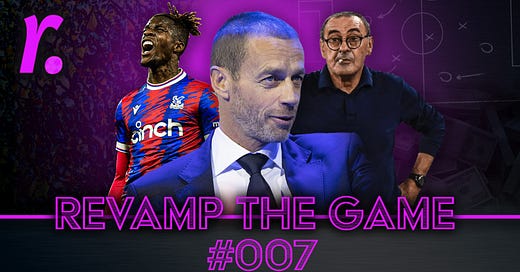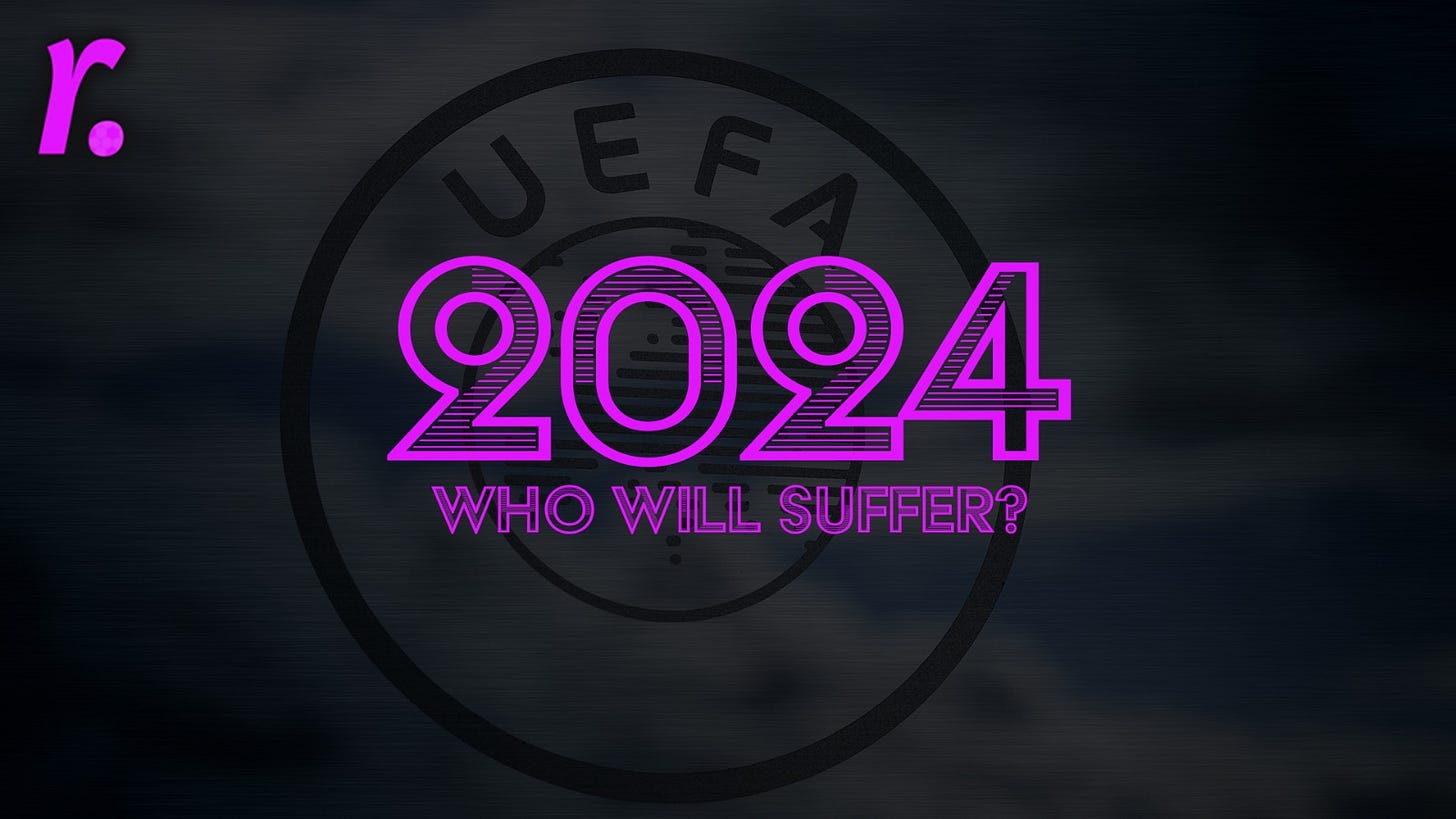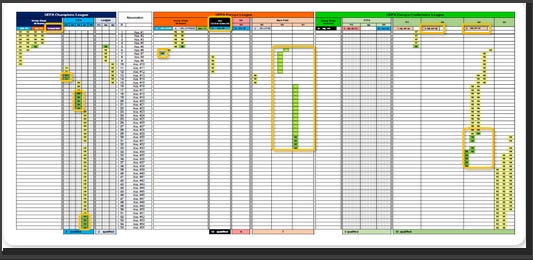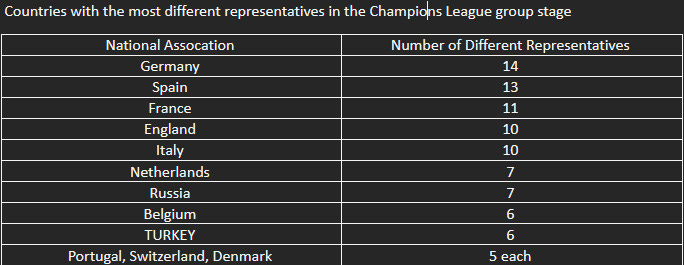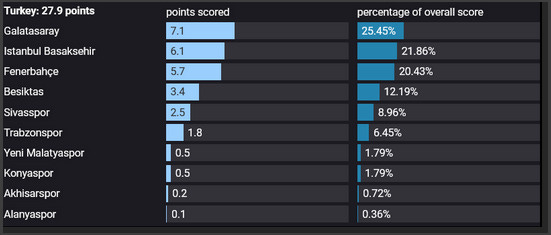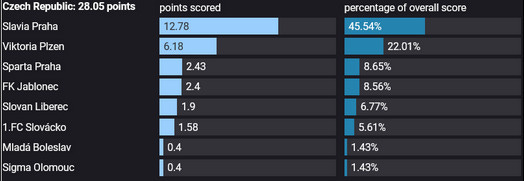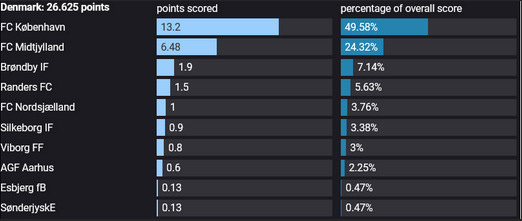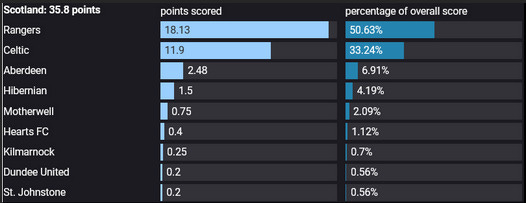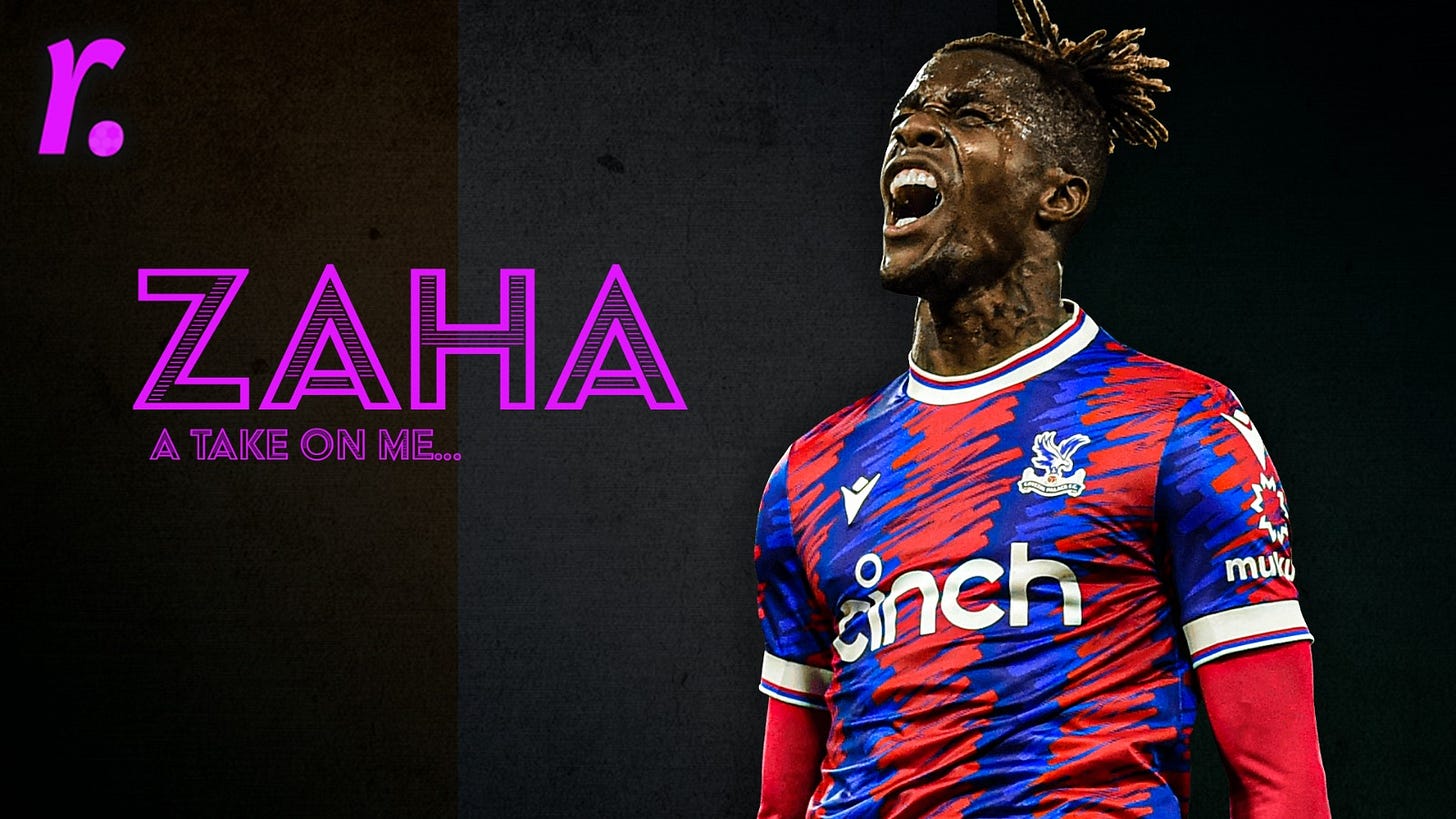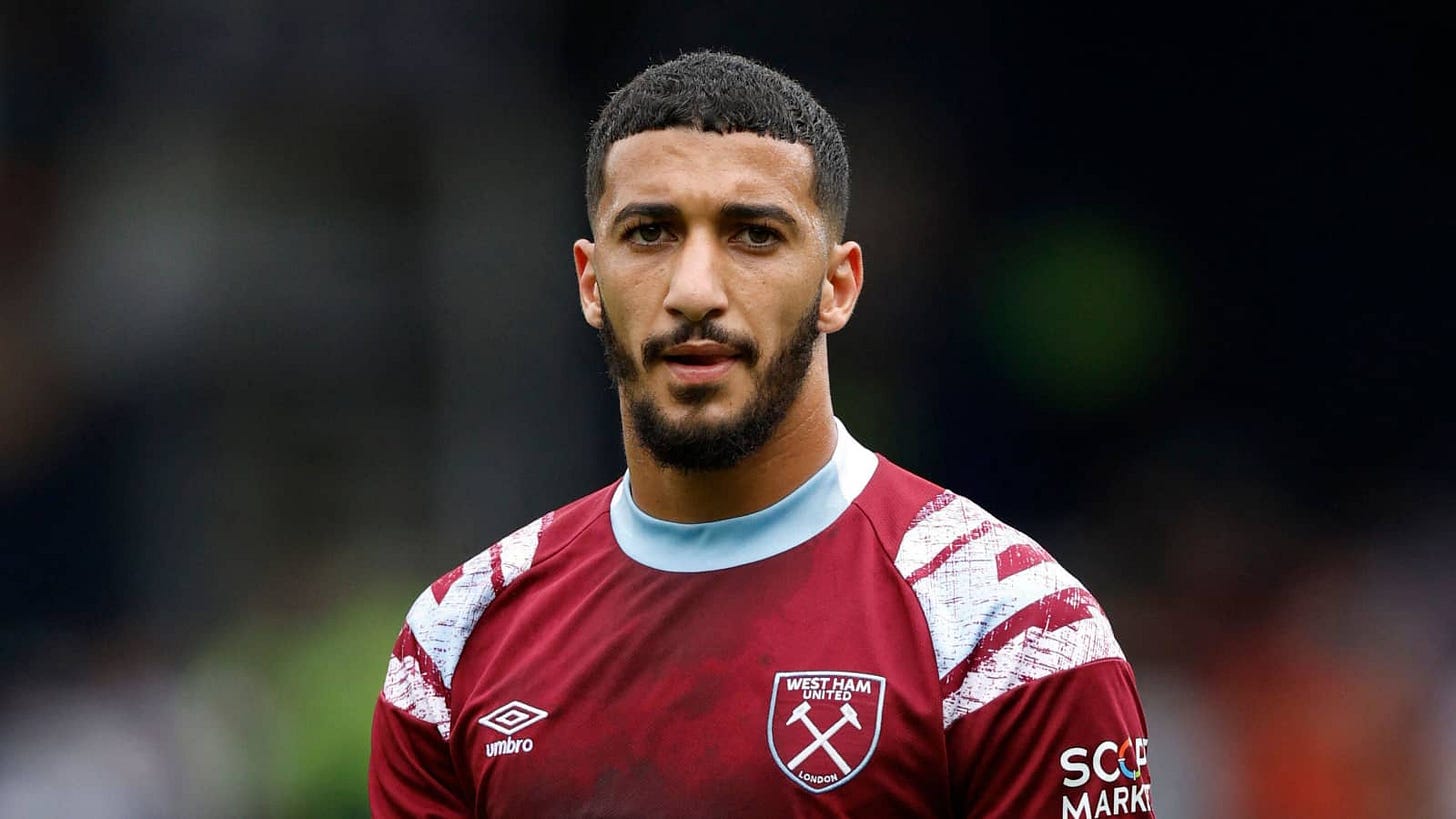Newsletter #007: We Are The Facilitators Of Our Own Creative Evolution...
Bond, Sarri, Co-Efficients & Zaha. Four topics you can only expect to intertwine on here, Revamp The Game. Yes, they are closely linked, attributed to the idea of creative evolution...
#007
A Note From Ömer…
‘Well, just goes to show, no one’s indestructible’ - James Bond, Diamonds Are Forever
As our content goes from strength to strength, Revamp The Game are building a brilliant portfolio which we hope to be the foundations of a project far bigger than what it is right now. Edition #007 could not pass by without a nod to the world’s greatest #7, James Bond. I would like to echo the quote above and apply it to the context of our project. We promote Revamp The Game as a decentralised football media platform with a consistently high standard of football content creation that will engage its reader instead of look to infuriate or disinterest them. Quite frankly, mainstream sports media is littered with lazy and biased analysis, but most shockingly dominated by the widespread urge to gain as many web clicks as possible. It’s a sad state of affairs for an industry that should be prioritising the advancement of knowledge within football.
I now look to the ‘decentralised’ football industry to gain knowledge and application to a sport I love more than anything. Independent creators such as the contributors at Revamp The Game are my new source of inspiration and education when it comes to football. We are witnessing a generational takeover in the football media space. A young, determined and intelligent generation of football content creators have had enough, they build their own platforms, they ensure their voices are heard and it is desperately needed. It is needed to ensure the industry does not enter a realm of clickbait and disingenuity.
Call it a revolution, call it whatever you want, We’re coming. If the majority of mainstream football media continue down a path of ignorance and dismissal to its consumers needs, platforms such as Revamp The Game will be primed and ready to takeover, because it ‘just goes to show, no one’s indestructible.’, not even the supposedly invincible status of mainstream media.
Ömer Çayir,
Editor-In- Chief,
Revamp The Game
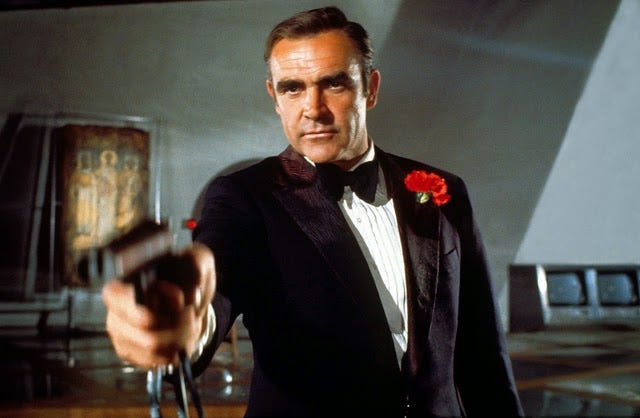
Maurizio Sarri: An Elegant Revolutionary…
Football: A Ruthless Industry...
Modern-day football is definitely smarter and more intelligent than what the game used to be in the past. Evolving systems have made the game complex but the evolution of data and analytics has helped many clubs stay in touch with the ever-advancing game. Yet, grey areas certainly exist and if you ask Lazio boss Maurizio Sarri, he’ll certainly tell you that not every club is smart and that certain clubs often make irresponsible decisions that cater to their own personal desires.
Imagine a club that hires a manager who can guarantee long-term success if he is handed a certain type of player to implement into his system. Such a club, it can be presumed, desires to win trophies and win by playing a brand of football that (X) manager promises. However, this club fails to make signings that can help the manager impose his approach into the team and despite him winning a trophy, the club sacks him despite the promise of a long-term project which has excitingly yielded a short-term reward too.
Two clubs (who you can most likely guess) notorious for short-term approaches did exactly the above to Sarri.
Meanwhile, Sarri is now etching his redemption arc at Lazio and with time - especially after the Biancocelesti’s 2-0 win over Atalanta, there is concrete proof of the fact that things are working for the Italian. It has taken a while - something his previous two clubs would have known if they had researched Italian football’s bespectacled revolutionary properly before hiring him.
Maurizio’s Way Or The Highway…
This isn’t to say that Sarri took too much time to deliver at Napoli or Empoli, though. The Italian took over an Empoli side that finished 18th in the 2011/12 Serie B season and took them to a fourth-place finish in the following 2012/13 campaign. Promotion followed in the season after before he earnt himself a big move to Naples. Sarri then took the Partenopei from a fourth-place finish in the 2014/15 Serie A season to second in the following year. Prior to Sarri, Napoli were a side well-known for a more pragmatic brand of football, especially under the previous two managers, Walter Mazzari and Rafael Benitez. However, on arrival, Sarri made an instant impact at the club, implementing a fresh footballing approach and an overhaul in personnel.
Making an instant impact at much-more politicised club with more lofty figures of influence is a different ballgame, though. At Lazio, Sarri undertook a side that was already playing a possession-brand of football under Simone Inzaghi, but it needed a complete change in shape, as they went from playing a 3-5-2 in every game to playing a 4-3-3. The change of formation and the adjustments that came with it became a key stumbling block for Sarri in his first season, as the backline struggled to make the transition until this season.
Francesco Acerbi, who had been a standout performer in the 3-5-2 under Inzaghi, had put in poor performances in the 4-3-3 which unsurprisingly sparked angry reactions from multiple Biancocelesti supporters, many of them wanted Acerbi gone. Defensive frailties loomed as Sarri had made something out of nothing from an ongoing situation with Patric. The Spaniard was amongst a contentious contract situation, but he excelled as a replacement for Acerbi and salvaged his future at the club. While Luiz Felipe was poor, the defender had to form a pairing alongside Patric before leaving the club on a free transfer.
The lack of ball-carrying from the full-back areas was also a problem, as it denied Lazio a consistent flow of ball progression from the back. Manuel Lazzari, who had done well under Inzaghi, wasn’t allowed a look into the side for a long while as Sarri had concerns about the player’s ability to switch from being a wing-back to playing as a full-back. But his performances in 2022 meant that he became a regular at right-back and provided a reliable solution for ball-progression.
Another dilemma for Sarri was the usage of Lucas Leiva in defensive midfield. As a manager whose system heavily relies upon the deepest midfielder, it was a problem he was desperate to solve - especially considering Sarri’s initial dilemma of whether to use Sergej Milinkovic-Savic and Luis Alberto together as higher 8’s in midfield. Leiva’s lack of pace and penetration meant that Danilo Cataldi was used in the deeper role by Sarri, rejuvenating a seemingly lost career.
The dilemma involving Milinkovic-Savic and Luis Alberto was high-profile and at one point, things took a turn for the worse when Alberto refused to turn up for training on consecutive days due to Sarri’s stubbornness and fear of tactical imbalance. Sarri would often drop one of them in the 4-3-3 and would often speak about it publicly. But once Cataldi’s spot in deeper midfield was sealed, the duo began playing together and continue to do so, despite consistent transfer speculation surrounding the two them.
Give The Man His Lighter…
The goalkeeping issue was solved by Igli Tare’s recruitment drive, as Ivan Provedel and Luis Maximiano joined to replace Pepe Reina and Thomas Strakosha. Both signings were deemed modern-day goalkeepers, as evident from their exploits at Spezia and Granada. Tare also brought in the exciting Marcos Antonio as a long-term replacement for Lucas, but arguably the best capture of the summer has been of Alessia Romagnoli.
He has been one of the best centre-backs so far in this Serie A campaign but, Romagnoli’s weaknesses were rather obvious at Milan. He struggled against quick forwards that could turn him easily. In Sarri’s structured system, the ex-Roma youngster is thriving. His passing between the lines has stood out, as he has become a vital part of the overall structure of the side playing beside Patric. Moreover, Nicolo Casale, who was linked with clubs like Milan and Napoli, was brought in from Verona and young Mario Gila was taken in from Real Madrid.
Whilst Matias Vecino was roped in for free - just like Romagnoli, none of Lazio’s signings were big names. They simply met the demands that Sarri wanted to be fulfilled. They brought technical value to a side that needed it and depth to a side that had lost experienced players. Mattia Zaccagni has proved to be an efficient replacement for Joaquin Correa too, as he has contributed to seven goals in 11 games in Serie A so far.
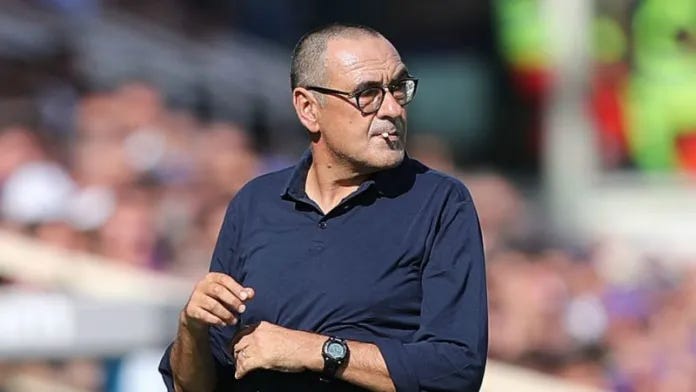
Sarriball: Football Played With A Cigar In Mouth…
More than anything, Sarri has found a way to improve Milinkovic-Savic further. Arguably one of the best players so far in the division, the Serbian has become a chief creator in the Lazio team, operating from the right side of the midfield. His combinations with Lazzari is a problem for any opposition and his Expected Assists per 90 minutes is at 0.31, much higher than a previous best of 0.21. While Luis Alberto has stopped being a regular due to his wishes of leaving Lazio, his usage has come at ideal moments. He has three goals despite playing only 379 minutes.
Ciro Immobile’s recent injury is an issue, considering he will return in 2023. But the win over Atalanta came as a result of Sarri using Felipe Anderson as a false nine - an approach he expertly used at Napoli through Dries Mertens. A striker signing could well be on the cards in January, but a lot of things now point to the fact that Sarri has now identified the minute details of the abilities of every player of the team. The recruitment has certainly helped, but a manager of Sarri’s ilk always needs the help of the higher-ups.
While a title-charge may be unlikely, Sarriball might well be back in fashion. And the chain-smoking genius has a home he most certainly deserves.
Kaustubh Pandey
UEFA Club Competitions 2024: Which National Associations Will Prosper (or Suffer) With New Format
The Access List for the 2024-27 cycle of UEFA’s club competitions was released last week as part of the leaked document. In last week’s Revamp The Game Newsletter, I touched upon the terrible idea surrounding the new titleholder scenarios. This time around, I will go through the countries that will likely improve their ranking resulting in the new format and those who will not.
I will take a look at three national associations (NAs) that will likely see their ranking increase from right now and three who will have a great chance in going in the opposite direction. Expect a common theme throughout, where we will take a dive at the group stage era and how clubs from the countries mentioned have fared in recent years. For the NAs expected to improve, it will surely be a team effort. Those that are expected to move in a downward trajectory, they will need to make some changes with celerity.
National Associations That Will Likely Improve Their Coefficient Ranking
Turkey
The potential for the Super Lig to move back into the top 10 in the rankings is there. A rich footballing history from several Turkish clubs allows for positivity for the NA to return to the top 10 of the coefficient rankings. At the time of writing, the Turks are 14th in the latest five-year coefficient ranking, 5.100 behind 10th place Austria. While it is highly unlikely that they will catch up to the Austrians this season, the signs are already there that Turkey is back on the up. Since the formation of the UEFA Champions League, there have been six different Turkish teams to make the group stage. Only the Big 5 leagues along with Russia and Netherlands have more, with the latter two having one more each.
The other point I would like to make on Turkey which is promising is the number of clubs that contribute to the coefficient. This is a significant factor, which will be a recurring theme in this piece. There are 10 different teams that have been in Europe in the five-season cycle representing Turkey. Of the 10, six of them have contributed five percent or more to the country coefficient.
Only Spain and Italy, both with seven clubs, have more teams that have contributed five percent or more to the coefficient in the same span. It goes to show that every club does its part when in Europe. To see NAs this low in the ranking earning coefficients from so many different teams is not a regular thing. So Turkish fans, there is hope.
Czechia
One place ahead of Turkey in the rankings, the Czechs have a similar recipe for success regarding clubs playing a part in the coefficient. The only thing missing is consistency in qualifying. The likes of Viktoria Plzen and Sparta Praha have had disastrous qualifying rounds of late, which have cost the country in the coefficient rankings.
One thing that is a place of comfort for Fortuna Liga’s clubs is the diversity of group stage participants. Only Sigma Olomouc and Mlada Boleslav have not made at least the group stage of the eight teams in the image above. Half of the sides listed above have also progressed past the group stage, though Slovan Liberec has not done so since 2013/14. In contention for 12th spot alongside the likes of Turkey, Norway and Ukraine, there is enough variety from Czechia’s European representatives to see them solidify a top 12 place in the coming years, so long as the top clubs play their part in getting past the pesky qualifying rounds.
Denmark
A top 15 finish this season is still not out of the question for the Scandinavian country. Their three clubs in a group stage have held their own, with all of them still holding onto hopes of playing continental football in the spring. Of the nine teams to make a European group stage since the Europa League era from Denmark, six of them have progressed to the knockout phase. Silkeborg can make that seven if they end up in the top two of their Europa Conference League section this fall. Seeing 2/3 of an NA’s teams go that far in Europe in such a span is incredibly impressive.
The potential is there for Danish football to become a solid top 15 country. It may take a season or two, but with three regular contributors to the coefficient plus help from elsewhere, it is difficult to see past them having a say.
National Associations that will likely struggle under new format:
Scotland
One will take a look at this, rub their eyes, and ask me if I am for real here. Scotland struggling to keep a top 10 spot? Sounds improbable. Rangers just made the Europa League final last season; they have two teams in a Champions League group stage in the same season for the first time in a decade and a half. So, what evidence would there be to suggest they could not hold on to where they are? Let’s start with the horrific campaign they are having. Both Motherwell and Dundee United lost at the first hurdle in Europa Conference League qualifying, combining for a record of 1-0-3. Hearts could not beat a Zürich side that has been downright bad all season.
While Hearts is in the UECL group phase, they have only won once in four outings. Still not enough proof? Hearts’ Conference League main round appearance is the first by a Scottish club not named Celtic or Rangers since 2007/08. Mind you this is before the time of the Europa League. Aberdeen was the last side to feature in the group stage when not considering the Old Firm. Looking at this season’s showing, Scottish clubs have won just 1.300 match points. North Macedonia, 52nd in the rankings, won more (1.625), and they lost all of their teams before the group stages.
Scottish clubs’ record in Europe this season up to and including match-day 4 of the group stages
This is nothing new for Scottish football of late. The table above goes to show just how reliant the NA is on Celtic and Rangers to earn coefficient points. Don’t believe me? Take a look below:
That image above is very telling. Celtic and Rangers combine for about 84% of the coefficient points won over the last five seasons. There is no other duo in the top 10 of the rankings that have combined for over 60% of their NA’s coefficient over the last five seasons. While Scotland will have two Europa League qualifying places in 2024/25, which might just do them more harm than good. If the clubs cannot even make the group stages, how will they keep the coefficient high enough to stay in the top 10? Celtic and Rangers cannot always do it themselves, as the current campaign has shown. And Scotland is not the only one who can say this, because just a few places below them is....
Serbia
Some may find it surprising to see Serbia’s name in 11th spot in the five-year ranking, and honestly, I do not blame them. In reality, Serbia is basically Scotland 2.0 regarding their coefficient situation. Let us name the clubs that have reached a European group stage hailing from Serbia. Ready? Go.
- Crvena Zvezda
- Partizan Belgrade
Wait, is there not more? Nope. That’s all. Surely that cannot be right. In the 15 plus years since the split from Montenegro, 11th place Serbia has only had two group stage participants ever? That’s right. We can even go one step further. Vojvodina (three times) and Borac Čačak are the only other Serbian clubs bar the ones already mentioned to have reached a playoff round in Europe. The latter did so back in the old UEFA Cup days, where it was referred to as the first round, the last before the group stages.
It should therefore surprise no one to see that Crvena Zvezda and Partizan Belgrade account for 85% of Serbia’s coefficient. Getting into the top 10 this season is looking even less likely for the Balkan nation, which will likely struggle to stay in the top 12. A second Europa League berth via qualifying spells trouble for them since the other clubs outside of the duopoly do not step up and play their part. CZ and Partizan can only keep the nation afloat for so long.
Moldova
I focused mainly on countries that are in the top 15, so let’s end with a country where football is, well, not at its best. And no, do not let Sheriff Tiraspol’s European run last season fool you. Unlike Scotland and Serbia, where they have two teams that make the coefficient, there is only one for Moldova. And yes, that is Sheriff. Take away the Tiraspol-based team from consideration, and Moldova would be a bottom five nation. No joke, it is that tragic for them.
Allow me to provide some more perspective. Moldova is 32nd in the coefficient ranking, and will likely hold on to a top 33 place. Latvia, currently three places lower, has four teams that have contributed more points to the coefficient than Petrocub has for Moldova. Keep in mind here that the Hîncesti club has provided the most points for Moldova excluding Sheriff. Latvia is not the only country below Moldova that can make that claim.
Kosovo, Armenia, Belarus, Luxembourg, and Faroe Islands all stand below Moldova in the rankings, yet each of them have three or more clubs that have given more help to their country’s coefficient than Petrocub. It is almost a certainty that Moldova will finish in the top 33, meaning they will have a spot in Europa League qualifying for 2024/25. With these uninspiring numbers, do not expect them to hold on to a top 33 place for long. Even with Sheriff working their magic in Europe, the dreary statistics will catch up to the nation at some point.
It will be fascinating to see how the next few years will pan out, with so many clubs doing their part (or not) to push their NA’s coefficient higher. One thing is for sure: some countries will need all the help they can get.
David Parkes
Wilfried Zaha: A South London Icon…But Palace Need A Pay Day
Wilfried Zaha is, without a doubt, one of the most talented wide attackers in the Premier League. His directness, pace, power and footwork cause a problem for every defence he faces, and it's almost staggering that Crystal Palace have held onto him for as long as they have. However, with just 6 months remaining on his deal, and with it looking ever-more likely he won't be renewing a contract, the Eagles could try and move him on this January. A player like Zaha could still see the South London club bring in around 20m for the Ivory coast international.
Despite his availability, and with Eze a natural replacement, it might make sense to cash in now. But which Premier League clubs that could go in for him in January?
West Ham
The Hammers have got off to a sticky start this season, their victory over Bournemouth on Monday night came as a result of a couple of favourable refereeing decisions and although Gianluca Scamacca has impressed, the Hammers could be looking to strengthen their attack. While Jarrod Bowen is the first name on the team sheet, Saïd Benrahma is far from consistent. A move across London for a team with European ambitions could be a good move for Zaha, and an even better move for West Ham.
Newcastle United
With money to spend, the club in the North East will be looking to bolster their squad further in January. Having completed the signing of Bruno Guimarães, the Brazilian has propelled this team into a bid for a top 4 finish and some strength in depth on the left-hand side for the Magpies could be exactly what they need. Yes, they have the tricky Allan Saint-Maximin, who's playing style is very similar to Zaha, but he struggles with injury problems and quite frankly, Ryan Fraser isn't good enough as a back-up.
Arsenal
The Gunners are going for glory. After an incredible start that has seen them rise to the top of the table, Arsenal’s new-look team has excited fans and neutrals up and down the country. However, they simply do not have the depth to truly compete and the weekend game against Southampton proved that. Players looked leggy in the second half, potentially struggling with the intense schedule having played on Thursday night and Mikel Arteta cut a frustrated figure as his substitutes (Eddie Nketiah and Fabio Vieria) failed to impact the game. Gabriel Martinelli and Bukayo Saka have been two of the most exciting players in the league this season, but they have no replacements. With Emile Smith-Rowe out injured, could the North London club make a move for Arsenal fan Wilfried Zaha?

Liverpool
Now I know this doesn't feel right. Zaha is not really a ‘Jurgen Klopp player’, or signing. But the sheer number of injuries the Reds are having to deal with could force them into a move for a ready-made replacement. The atmosphere at Anfield has been rather lacklustre this season compared to the last six years, and someone like Zaha could be the answer. It's a bold shout, I know. But it might just work.
Jack Abela
Once again I would like to thank you all for taking your time to read Revamp The Game. If you could like this post and share it, we would be eternally grateful!
See you next week for #008. :)
#RevampTheGame
